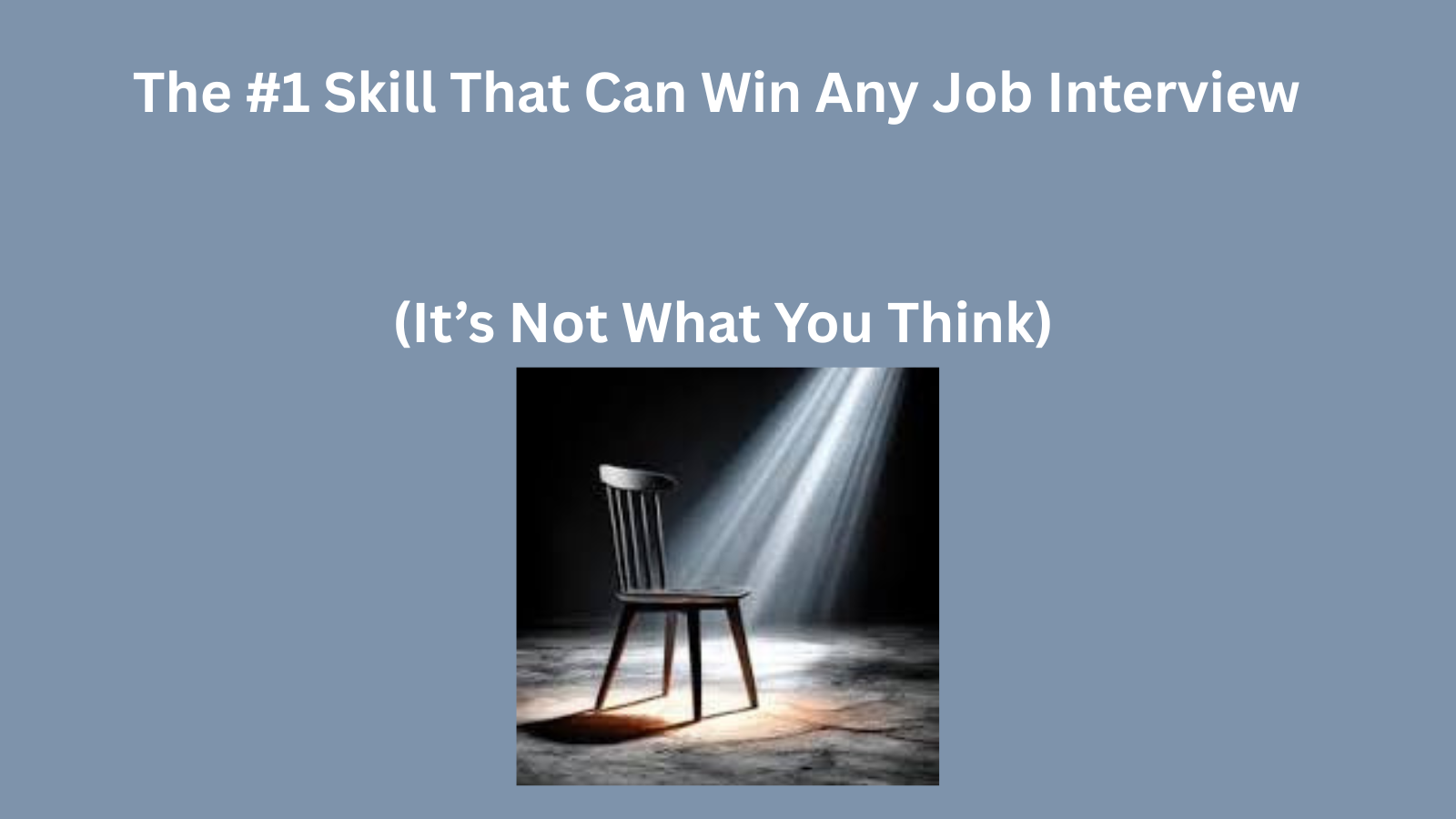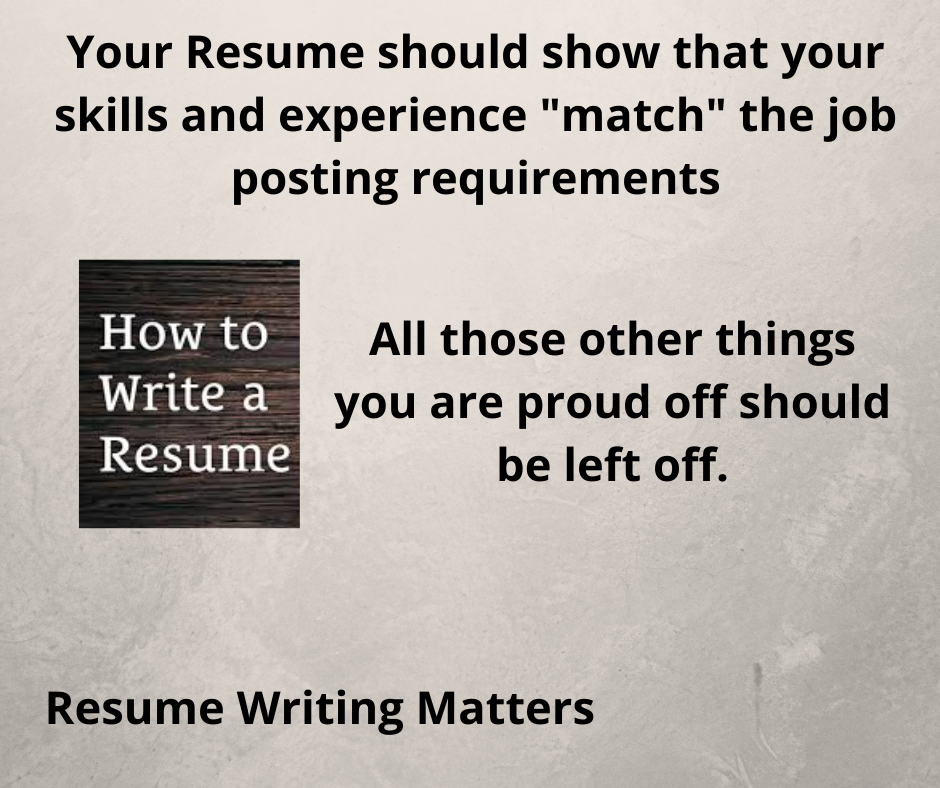Job interviews come with long checklists—résumés, body language, thank-you notes—but one skill consistently tips the balance. Genuine passion and enthusiasm, when communicated authentically, often make the difference between getting hired or overlooked. Here’s why it matters, and how to harness it.
Read moreBest Question to Ask During Your Final Interview and Why?
Your resume, LinkedIn profile, and interview are your best opportunities to present yourself as the ideal candidate for a position. These are tools to help you succeed. Of course, asking the right question is vital to an interview.
In a recent article in Inc. Magazine by J.T. O’Donnell titled “Why Asking This 1 Question in a Job Interview Increases the Chances You'll Get Hired,” the author suggested this question:
"What's the company's biggest threat to success this year, and how will I be able to help overcome it in this role?"
The reason was: “By asking this, you're allowing the employer to articulate how this position (and the person it!) can offer the biggest impact”.
Planning out questions to ask before the interview is essential, and thought needs to be given to what impression does a question communicate? Both sides to this crucial question suggested will reveal more than they might expect with this question. If the job candidate does want to make a difference in their work, their genuine sincerity will be communicated along with the question. The question can hurt the candidate’s chances if genuine interest isn't there. Likewise, suppose the employer doesn’t see the candidate’s contributions as necessary or has already decided whether they are the right candidate. In that case, that will be communicated with how the question is verbally answered. Both sides of an interview need to read and understand the nuances of body and speech communication.
The Inc. article offers other insights into how questions can be helpful. Still, some pre-interview research can often help learn what the people in the interview might consider their hot-button priorities. If the last person out the door with you has little involvement with the job being considered, then a different question might still show a candidate’s sincere interest in the company.
Also asking about the next steps in the process should not be missed because it communicates that the candidate does have a strong interest in the company and position.
Stop Using These Overused Resume Words
Many résumés are full of overused buzzwords—creative, dynamic, detail-oriented—that don’t tell employers much. Career coach Martin Yate explains why these terms fall flat and shares powerful action verbs you can use instead to make your résumé stand out.
Read moreHow did you use your time when you were out of work? →
It is true that during the Pandemic, many more people have been out of work and out for a more extended period, but what do you say if you asked, “what did you do with your time”? The answer can label you, and it is essential to know what to say—if you are still out of work, then thinking about this question can help point you in some good directions.
“I spent time volunteering for charitable causes each week” is a good answer and an even better activity because in doing this, your mix with others who can be excellent network connections.
“I spent a lot of time working on certifications to not only bring myself current but to add new skills” is a great answer and something you should do.
“I spent time with several industry trade associations volunteering and helping in their offices and projects.” This, of course, broadens your experiences within your industry and also adds networking and connection opportunities.
“I spent time with the key customers in the industry and suppliers to learn more about them.” This could lead to other trade associations but adds value to you as a potential employee.
What is the difference between a CV and a Resume? →
The CV presents a complete history of your academic credentials, so the length of the document is variable. CV is for educational purposes.
In contrast, a resume presents a concise picture of your skills and qualifications for a specific position*, so length tends to be shorter and dictated by years of experience
The LinkedIn Profile is also different than the Resume. See the differences at:
“The differences between a LinkedIn profile and a Resume.
Research the Dress Standards when you go to a Job Interview
What you wear to a job interview can say as much as your résumé. Choosing professional, neutral attire shows respect, confidence, and an understanding of the company’s culture. From colors and clothing choices to accessories and what to avoid, this quick guide will help you dress for success and make a strong first impression.
Read moreInterviews are two way streets are are one way to find out more about the boss →
A caring boss is highly valued by their employees, while a boss who neglects their team is often disliked. In fact, many workers leave their jobs because of poor relationships with their bosses rather than issues with the company as a whole. This makes it clear that having a good boss is more important than having a good company. After all, can a company truly be considered good if its bosses are not?
During the job interview process, both potential employees and bosses have the opportunity to learn about each other. As a potential employee, you should be sure to research the boss's past direct reports on LinkedIn to gain insight into what it's like to work for them. Additionally, ask questions that reveal the boss's core values and what they look for in a team member. A good boss will foster an environment of integrity, trust, and respect, while also encouraging innovation, creativity, and feedback. Employees who work in such an environment typically perform at their best.When it comes to finding a good boss, it's important to consider not just their leadership style but also their communication skills. A boss who is open and transparent with their team about company goals, expectations, and challenges will likely build stronger relationships with their employees. This, in turn, can lead to higher levels of employee satisfaction, productivity, and engagement.
One way to gauge a boss's communication style is to observe how they interact with their team during the interview process. A good boss will listen actively, ask thoughtful questions, and provide clear and concise feedback. They will also be willing to answer any questions you have about the company culture, team dynamics, and job responsibilities. If a boss seems disengaged, dismissive, or uninterested in your questions, it may be a red flag that they are not invested in building a positive working relationship with their employees.
Another key factor to consider when evaluating a boss is their ability to provide constructive feedback and support. A good boss will offer regular feedback on your performance, identify areas for improvement, and provide resources and guidance to help you grow professionally. They will also be receptive to your feedback and suggestions, and work collaboratively with you to achieve shared goals.
Of course, finding a good boss is only half the battle. As an employee, it's important to take ownership of your own career development and seek out opportunities to learn and grow. This may involve seeking out additional training or education, volunteering for new projects, or taking on leadership roles within your team. By demonstrating your commitment to personal and professional growth, you can build a strong working relationship with your boss and position yourself for long-term success within the company.
Ultimately, a good boss is one who prioritizes the well-being and development of their employees. They will provide clear direction, offer regular feedback, and foster an environment of trust, respect, and collaboration. By taking the time to research potential bosses and ask thoughtful questions during the interview process, you can increase your chances of finding a boss who will help you achieve your career goals and build a fulfilling and rewarding career.
What information should you leave off your resume? →
Some of the information that makes it onto resumes may actually distract from your professional image and brand. The value of a resume is increased when it consistently points to the jobs you apply for and is in sync with your career trajectory.
Side jobs, temporary jobs, jobs to get you through a tough period, may just not be relevant to the career direction you have been on, or applying for, and they can be a distraction. Space on the resume is like high priced real-estate so make sure that the information that resides there needs to be there.
Just because you did something doesn’t mean it deserves space on your resume. If omitting something leaves a gap in your employment history of more than a year the you probably should include it.
Balancing relevance of jobs with employment time gaps on your resume can be a challenge. A possible solution can be using years only, rather than months of all the job on your resume. Adding a reason for the gap, for example, medical leave, family leave, education leave, or whatever the situation really was, can be included as a note in the gap space.
Personal information such as height, weight, birth date, age, sex, religion, political affiliation, or place of birth should not be included on the resume and employers are not entitled to that information in making a job decision.
The best information is the experiences that show you fit what is wanted.
#resumes #resumecontent #findingajob
Your resume should show that your skills & experience "match" the job posting requirements →
Resumes are important tools to use in applying for a job and evaluating those that apply. The LinkedIn resume’s summary statement is a general overview of your past career and doesn’t need to change, but the summary statement at the top of your paper resume or what you upload with your application should have a summary statement crafted separately for each job you apply for. This is of course a lot of work but that is just the reality of what it takes to search for jobs. The search itself has many needs that influence the reasons why it is a lot of work.
Job postings reveal what is wanted in a job applicant. The company wants certain skills and specific types of experience. When you prepare a resume to submit with your application your goal should be to show the potential employer that your experience and skills are the best match for what they are looking.
It seems obvious that awards and innovations that an applicant may be responsible for in other industries or jobs that have no relevance to what in the posting is what is being asked for should be left off. Sometimes it is personal pride that causes an applicant to include such unrelated items. Remember that resume writing matters and giving the potential employer what they are looking for is how you get hired and that is why it matters.
What is the name of the Job your applying for? →
Before you apply, try to learn the job name they are looking to fill. It will show that you took some interest and make you sound much better than trying to ask about the vacant job without a name. Wait a minute! Do companies have listings like this? Yes, sometimes they do, and the company may assume the job is obvious, but it would still have a correct name.
Vocabulary is always essential. A job may be called one name in one industry and another in a different sector even though it could be the same.
Another critical point is that you need to know the job name and description. Which departments does that job work with, and what does the company itself do. Researching before you make your first call or even try to use the right words on your application is essential.
How to Answer “What Is Your Greatest Weakness?” in a Job Interview
The question “What is your greatest weakness?” shows up in nearly every job interview. While it can feel like a trap, the right answer highlights your self-awareness and growth. This guide explains how to choose the right weakness, frame it constructively, and provide examples that reassure employers.
Read morePresent Soft Skills that are Transferable and Portable on Your Job Searching Resume and Interview
Soft and transferable or portable skills can be challenging to capture on a resume or even in an interview, but they can be the difference that gets you the job. First, you have to know enough about the job and company you want to talk with to be able to identify the skills from these categories that will be important (good focus for your informational interview) and then be able to present these verbally as you answer questions and talk about yourself in the hiring interview and process.
Some skills will be significant enough that you will want to make them part of your career path story. Some of these skills should be included in your “About” section on LinkedIn. Some may fit into the skills section of your resume, but of course, these skills need to match where you want to do the skills you want in the company posting. Cover letters can be the best place to present your career path story and show that your soft and transferable skills will bring value to the organization.
Your “Me, in 30 seconds” or your elevator pitch, even though often tailored and memorized, should consider the opportunity that the particular networking opportunity represents and weave some of these skills into the message that will be meaningful to the target audience you are speaking to.
In the interview, when asked questions often, you can demonstrate how you got results and reference the transferable skills you have to get the desired results. Just as you would identify the skills you’d like in a posting to present on your written resume, you will want to match those keywords to your verbal responses. If the post asks for someone who gives attention to detail, use those words in your verbal exchanges in the interview. Show that you understand and did your homework by identifying what the potential employer went to some effort to communicate.
Prepare for the Job Interview Questions that Might Come Up, and the two that Always Do.
You are preparing for a job interview and doing everything you can to prepare. You have identified people who have worked at the company and talked with others in similar companies with the same job title and interviewed them.
Before you received the opportunity for an interview, you researched the company and studied its products. The specific job you are applying for, and learn more about the people that will likely be in the discussion from your LinkedIn research.
What about the questions they will ask you in the interview? Do you know what they will be? Are you ready? What about the inevitable questions that always appear in an interview: What are your greatest strengths and weaknesses?
Before you are asked these two questions, you should ask them to yourself, giving the most honest answer you can. Your potential employer will want to know if your strengths match the possible job and that your job skills will be strengths to doing the job well. Do they match? If they don’t, you should reconsider applying because you will do better and be far happier if they fit.
Just assume these two questions will come up and be ready for them. The HR department or the hiring manager inevitably uses these questions because they know it is better to develop people based on their strengths rather than their weaknesses. However, this question can still be risky and a trap.
Identifying your shortcomings requires some absolute personal honesty, but even that can be a trap. People sometimes are tempted to congratulate themselves for their honesty, revealing unneeded weaknesses, and move on. Truth is better served by considering the context in which these questions are presented.
If your weak areas are irrelevant to the job, they may not belong in the interview. If your weakness is a potential roadblock in meeting the needed job skill requirements, then focus and thought will be required before the discussion on how to answer that if asked.
You should only present weaknesses if you can include your successful steps in overcoming them. For example, if you miss appointments and don’t do well with short-term memory, then add how you solved the problem for yourself with your devotion to a daily planner.
Before changing employment, or applying for a job, match your natural strengths to those needed for the job and show that they compare what the company wants when you present them. Know yourself well enough to know what you are good at.
Networking is the key to finding a new job, but those in your network will have different experiences in their past contacts with you. Those you worked with in areas where your most vital skill strengths were used are the best contacts. Both former supervisors and coworkers know your strengths. Draw connections from past work experiences that you enjoyed and were good at first.
Suppose you like the type of work a job represents. In that case, that fact can be listed as one of your greatest strengths because people do well when they do things they enjoy and have a passion for. Still, you will have to understand the job you are applying for before the interview if you are going to be able to point out in a creditable way what you noticed about the potential job that you like; it might also be a question you will get. Those questions will demonstrate that you are targeting specific things and enable you to mention what caught your attention about the potential job.
When your search brings you to the interview, lay out your strengths so that they match those needed for the job.
This short essay appeared on LinkedIn.
How to Answer “Why Are You Interested in This Position?”
The interview question “Why are you interested in this position?” is a chance to show your research, preparation, and enthusiasm for the role. This guide explains how to craft a strong answer, connect your skills to the job, and even tackle tricky questions like “What is your greatest weakness?”
Read more














